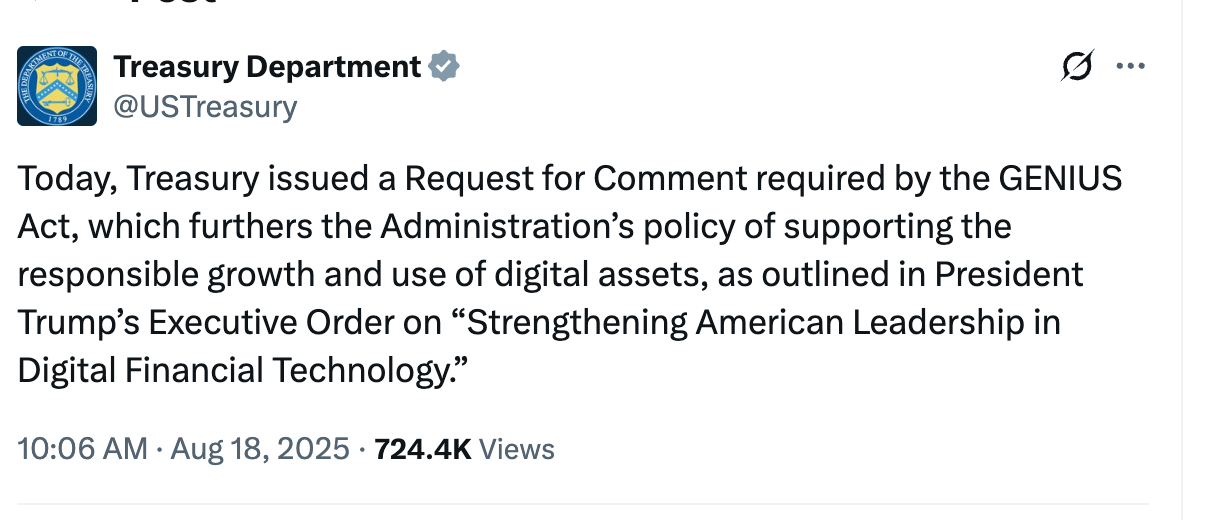The US Treasury’s DeFi ID Plan Is Kickstarting - Is There Anything Good in It?
DeFi can impact your life for the better. Will the government take that ability away? Who's seen Gattaca?
The US Treasury has issued an open call for the public to share their comments regarding the introduction of a digital identity that checks into DeFi smart contracts.
This open call, which began on August 18 and lasts until October 17, is part of the Treasury's GENIUS Act consultation on crypto compliance tools.






